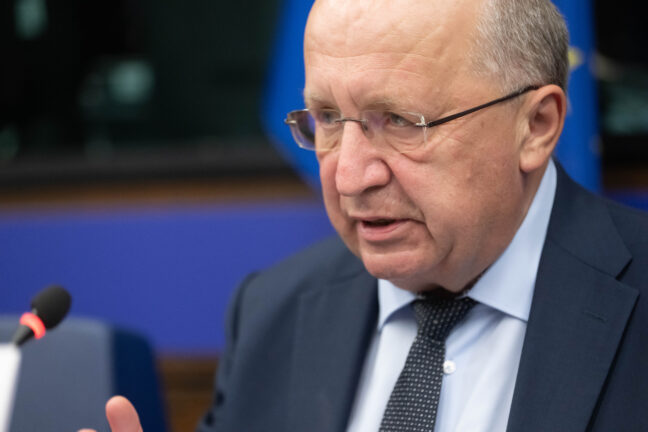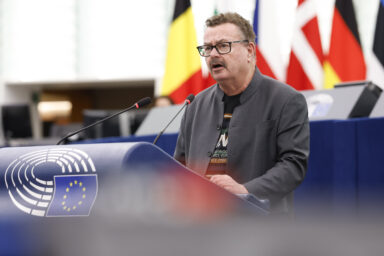Europe’s defence is in for an overhaul. The Commission initiative aims to unlock up to €800bn in investments over four years. It is to streamline regulatory frameworks to help member states and industry respond to intensifying global threats.
The European Commission adopted the Defence Readiness Omnibus on Tuesday, 17 June. The sweeping legislative package is to accelerate military preparedness across the European Union. The move follows a 6 March 2025 European Council demand for urgent action to adapt the bloc’s peacetime rules to a darker security landscape.
„We live in dangerous times,“ announced Andrius Kubilius, EU Commissioner for Defence and Space. “Putin will not wait for us to have our paperwork in order. We propose to drastically cut red tape for defence industry, slashing permit deadlines from many years to just two months, and more measures so industry can swiftly ramp up production to achieve European defence readiness by 2030. The goal: to deter aggression, prevent war and preserve peace.“
Bottlenecks tackled
The omnibus draws on the White Paper for European Defence-Readiness 2030, which argues that existing EU regulations—crafted for an era of relative stability—hinder rapid capability development. The package tackles bottlenecks in procurement, permitting, and cross-border co-operation. Its centrepiece is a Commission Communication flanked by legislative proposals spanning defence-specific and broader sectors, from environmental law to finance.
In defence legislation, the European Defence Fund will see simplified administrative requirements and faster grant approvals, informed by stakeholder feedback and an interim evaluation. „With the (omnibus), we are sending a clear political signal: Europe is serious about defence and creating credible preparedness,“ said Henna Virkkunen, Executive Vice-President for Tech Sovereignty, Security and Democracy. „We are cutting through bureaucracy to help member states and industry act faster, invest smarter, and strengthen our collective deterrence. This is about turning EU ambition into real capability.“
You might be interested
Key takeaways
Defence procurement rules are overhauled to incentivise joint purchases by at least three member states, ease off-the-shelf acquisitions for stock replenishment, and double contract thresholds under the Defence Procurement Directive. Intra-EU transfers of defence products will face fewer delays, with streamlined authorisations critical for EDF projects.
Putin will not wait for us to have our paperwork in order. Andrius Kubilius, EU Defence and Space Commissioner
Non-defence reforms include a two-month fast-track permitting system for defence infrastructure projects, such as factories or training sites, and clarifications to environmental and chemicals laws. These allow member states to invoke public-interest derogations for projects involving critical substances. InvestEU eligibility criteria will be adjusted to align defence investments with sustainable finance principles, underpinning the €800 billion investment target.
The proposals now enter the ordinary legislative procedure, requiring approval from the European Parliament and Council. This follows extensive consultations, including a public survey, bilateral talks with governments and industry, and high-level dialogues chaired by Commission President Ursula von der Leyen and Defence Commissioner Andrius Kubilius in May 2025.
Driving defence innovation
Stakeholders overwhelmingly called for simpler, faster processes to unlock cross-border projects. „Our single market is a powerful tool to accelerate European defence industrial production to deter potential threats to the EU countries and our citizens,“ said Valdis Dombrovskis, Commissioner for Economy and Productivity, Implementation and Simplification.
An interim review of the EDF highlights progress in defence R&D, with €5.4 billion already committed. The fund has spurred cross-border collaboration, drawn in SMEs and new market entrants, and accelerated next-gen technologies in land, air, sea, space, and cyber domains.
Yet the omnibus recognises that regulatory agility—not just funding—will determine whether Europe can translate innovation into credible deterrence. As geopolitical storms gather, Brussels bets that lighter rules and heavier spending can fortify the bloc’s defences.










